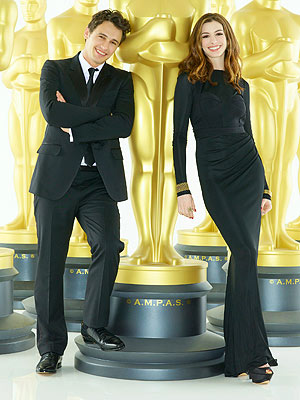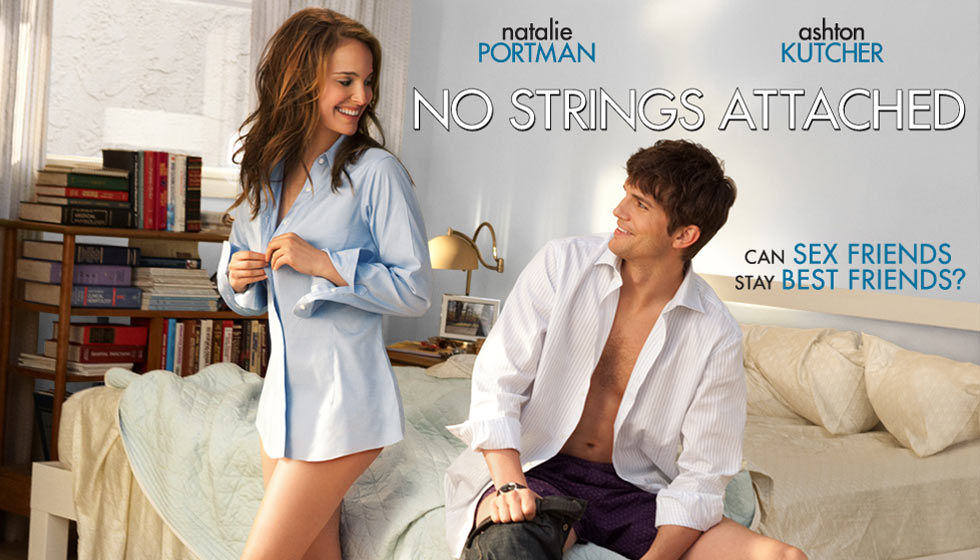Last night, the Oscars finally jumped the shark, with a televised ceremony in which the host, James Franco, looked as bored as the audience. Because, let's be honest, the Oscars have long-since been completely irrelevant for film-goers and an endurance test for television viewers - useful only insofar as you care about haute couture trends and selling advertising space in glossy fashion magazines.
The reality is that when it comes to rewarding good Cinema, the Academy of Motion Picture Arts and Sciences has always missed the mark. This is, after all, the voting population that gave an Oscar to Dances With Wolves over Goodfellas, and to How Green Was My Valley over Citizen Kane. But at least Kane was nominated. The Academy didn't even pay that respect to The Third Man; Brazil; Mean Streets; Last Tango in Paris; Easy Rider...The list goes on: iconic films that have become part of our cultural heritage, and all of them completely over-looked by the self-appointed arbiters of quality and success. Not only does the Academy have a shocking track record in rewarding quality, but they compound errors in judgement by trying to make amends in following years, further punishing that year's worthy candidates. The classic example of this would be Martin Scorsese, serially and criminally overlooked for his masterpieces - Mean Streets, Raging Bull, Goodfellas - only to have those slights "put right" with a sort of Lifetime Achievement Award in all but name with his Best Director Oscar for The Departed in 2006. Too bad for Almodovar, whose Volver surely deserved recognition.
The cause of this shambles is threefold: age, actors and alternative votes. First off, the Academy voters are OLD. Once you are invited to join, you are eligible to vote for life, resulting in an average voting age in the late 50s. And, as ageist as this might sound, old people are inherently more conservative than young people. And in an industry where cutting edge, pioneering, radical art will be produced by the young - and mainstream blockbusters are designed to be consumed by teenage boys - the Academy voter is left out-of-touch with both art-house and mainstream sensibilities. This is why you end up with sentimental, populist pantomime like Driving Miss Daisy and The King's Speech cleaning up, while more edgy material is left unrecognised. And if one wanted to be even more damning, that's why a movie like Brokeback Mountain, featuring explicit gay sex, never stood a chance.
Second, the Academy voters - made up of the leading lights of all the industry groups that bring movies to the screen - is dominated by actors. And actors basically vote for films that contain Big Melodramatic Performances. This is a key reason why so many Serious Dramas win Best Picture while comedies - especially group ensembles - tend to be overlooked. That's why Hilary Swank won two Oscars before Sandra Bullock got a nomination - and why everyone's favourite "girl next door" actress had to choose an Issues Film before she finally got recognition. And don't even get me started on how genre films - you know - the type of movies most of us take to our hearts! - get overlooked. If the Oscars really represented the best of 2010/2011, then Toy Story 3 would've won Best Picture, not just Best Animated Feature, and Kick-Ass would've been nominated too.
The final nail in the coffin is the Alternative Vote system of voting. What basically happens is that each industry group gets to vote for its own award - so the directors vote for the Best Director and the editors vote for the Best Editor. But in the case of Best Picture, everyone can vote and they have to rank all ten (count 'em!) ten nominees. If a nominated film fails to get at least 10% of the first-choice votes, it gets knocked out, and all the people who voted for that film have their second choice added to the ballot. So goes the knock-out process until a winner emerges. What this means is that you can easily have a film win without a majority, or even a plurality of first-choice votes, so long as most people think it's basically okay and rank it somewhere in the top third of movies. And, you guessed it, that favours films that are basically pretty harmless and banal and are unlikely to offend anyone.
The upshot is that, thanks to Age, Actors and AV, the Oscars never were and likely never will be a place where great pioneering provocative cinema is awarded. But just because the awards on offer have no credibility doesn't mean that the TV show has to suck. In theory, one could imagine a scenario in which, while the awards were nonsensical, the ceremony was spectacularly entertaining. And for years this is exactly what the Golden Globes managed to pull off, with its slightly anarchic, shambolic air, fueled by too much booze and a sort of wry amusement at the anonymity of the hosts. This trend reached its apex with this year's ceremony, featuring Ricky Gervais as a kind of schlubby avenging angel, speaking Truth to Self-Appointed Power. Gervais said what everyone was thinking but didn't have the balls to say. And what's more, he said it to their faces. Never before have I seen such a glorious spectacle - such a brilliant skewering of ego. But, alas, hackles up, Hollywood is never going to allow that kind of bat-shit crazy career suicide again.
And so we ended up with the debacle that was last night's ceremony. The awards roster was, as usual, bloated with technical awards that no-one except the industry cares about (who, outside the obsessives, even knows what an Art Director does? - who even watches short features anyway?) The winners were all the odds-on favourites - The King's Speech cleaning up the main awards, Inception taking the technical awards, and The Fighter and Black Swan rounding out the roster. Even Melissa Leo's F-bomb came across as pre-scripted - her faux-naivete and excitement a calculated move to garner column inches and, hey!, I too fell for it. The only real shock was just how uninvolved James Franco looked - merely cementing his art-house credentials as the guy too busy reading Kerouac to give a damn.
And so the endless speculation about the winners is over, and the real Oscar conversation - who wore what - can begin. Glossy pictures of stars in ball-gowns will sell magazines and drive unique page-views to the TMZ. And in a world where print media is dying and advertising is leaking to the internet - where movie studios are struggling to fend off piracy - maybe we shouldn't begrudge them their annual shameless cash-in. Fine. But all I ask is that we stop pretending that the Ocars have anything to do with a real discussion about what was good and admirable in the last year's cinema.


























